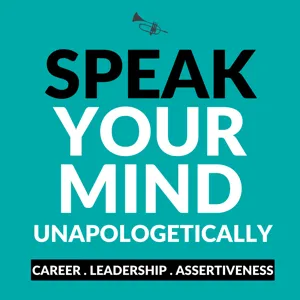Podcast Summary
Effective communication in web development with Sentry: Sentry tracks errors and exceptions, providing crucial info for quicker bug resolution and improved team collaboration.
Effective communication is essential in web development, especially when dealing with bugs. Sentry, a sponsor of this episode, is a valuable tool for enhancing communication within development teams. Sentry tracks errors and exceptions on both the front end and back end, providing developers with crucial information to address issues efficiently. By using Sentry, developers can quickly identify errors, understand their root causes, and even reach out to affected users for further investigation. This transparency leads to faster resolution times and improved collaboration among team members. In essence, Sentry empowers developers to communicate more effectively about bugs and work together to create better software.
Effective Communication Skills for Successful Projects: Improve communication skills to build stronger relationships, increase productivity, and deliver high-quality projects by focusing on active listening, clear messaging, empathy, and regular check-ins.
Effective communication skills are essential for successful project outcomes, often even more important than technical abilities. Poor communication can lead to misunderstandings, missed deadlines, and ultimately, project failure. Sentry, a sponsor of this episode, serves as a valuable tool for developers to identify and address issues on their websites quickly. However, it doesn't fix the bugs itself. Communication skills enable developers to collaborate effectively with their team and clients, ask good questions, and receive helpful feedback. Neglecting communication can disrupt project timelines and impact future projects. To improve communication skills, focus on active listening, clear and concise messaging, empathy, and regular check-ins. By prioritizing communication, developers can build stronger relationships, increase productivity, and deliver high-quality projects.
Improving Communication for Team Success: Practice intentional communication, establish systems, use Agile methods, deliver feedback thoughtfully, avoid mind-reading, and over-communicate when necessary.
Effective communication is crucial for a successful project and team. However, not everyone naturally possesses strong communication skills. To improve, intentional practice is necessary, along with setting up systems and rules to facilitate proper communication. Agile methods are an example of effective communication systems. Feedback and criticism delivery are also important aspects of communication that require thought and intention. Over-communication, while sometimes annoying, is generally effective in keeping everyone informed. Ultimately, no one can read minds, so expressing concerns and thoughts clearly and intentionally is essential for team success.
Effective communication is vital for successful software development projects: Regular communication systems, asking the right questions, proactive updates, appropriate tools, and mindfulness of preferences are key habits for effective software development communication
Effective communication is crucial for successful software development projects, and it requires intentional effort and the establishment of good habits. Setting up regular communication systems, such as stand-ups and meetings, is essential. Additionally, asking the right questions to extract necessary information and being proactive in updating stakeholders are key habits to build. The use of appropriate communication tools is also important, as is being mindful of the preferences of the individuals or teams you are communicating with. Overall, consistent and clear communication is vital for ensuring projects run smoothly and efficiently.
Effective communication and prioritization tools for teams: Use GitHub for development and issue tracking, Slack for real-time communication, Notion for scheduling and bigger intentions, and Missive for centralizing email threads. Prioritize tasks using a system like P1, P2, P3, and P4.
Effective communication and prioritization are crucial for a successful team. The use of various tools like GitHub, Slack, Notion, and Missive can help streamline communication and prioritize tasks. GitHub is ideal for development and issue tracking, while Slack is great for real-time communication. Notion is versatile and can be used for listing out bigger intentions and scheduling, while Missive can centralize discussion within email threads. Prioritizing tasks using a system like P1, P2, P3, and P4 can also help ensure that everyone is on the same page regarding project progress and importance.
Finding the right communication tools and strategies for teams: Effective communication is crucial for teams, balance tools with focus, share communication tips on Twitter @syntaxfm.
Effective communication is crucial for teams of all sizes, and it's essential for developers and manager to find the right tools and strategies for their specific team. The speakers on the Syntax podcast discussed their experiences with communication tools, particularly Slack, and expressed interest in hearing from other teams about what works best for them. They emphasized the importance of balancing the need to communicate with letting team members focus on their work. The speakers also encouraged listeners to share their communication tips on Twitter using the handle @syntaxfm. They acknowledged that communication is an often overlooked aspect of team management, and encouraged developers and managers to prioritize it. Overall, the conversation highlighted the importance of finding the right communication tools and strategies for different team sizes and structures, and the value of sharing experiences and insights with others in the industry.






